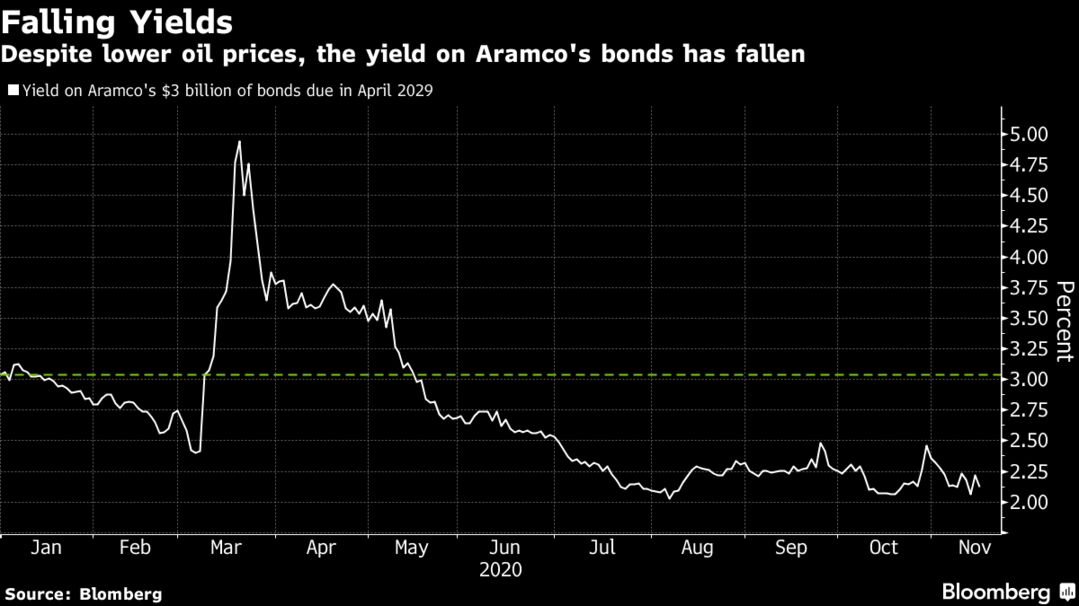Saudi Aramco kicked off a jumbo bond sale Tuesday to help fund a $75 billion dividend, returning to the debt markets for the first time since April of last year. The state energy firm is raising debt after slumping crude prices caused profit to fall by 45% in the third quarter. That’s left it unable to generate enough cash to fund investor payouts, almost all of which go to the Saudi Arabian government, which needs the money to plug a widening budget deficit and prop up a slumping economy.
Benchmark Brent oil has dropped almost 35% this year to around $44 a barrel, with the coronavirus pandemic and lockdowns sapping demand for energy. Despite that, yields in the developed world are so low that investors have rushed to buy highly-rated emerging-market assets, including those of Aramco. The yield on the company’s $3 billion of bonds due in 2029 has dropped to 2.12% from 3.04% at the end of 2019. That’s only slightly higher than the yield of Saudi government bonds with a similar maturity.

The Dhahran-based firm, rated A1 by Moody’s Investors Service, may issue around $6 billion of bonds, Bloomberg reported Monday. That would be half the amount the company borrowed in its debut sale last year, when it attracted more than $100 billion of orders and priced at a lower yield than the government. Emerging-market investors have become more bullish in the past two weeks following the U.S. election and pharmaceutical companies making progress on coronavirus vaccines. But the spreads on Aramco’s new bonds should still compensate any investors wary that President-elect Joe Biden might increase regulations on oil and gas companies, according to Bank of Singapore.
“Pricing looks reasonably generous, although it will undoubtedly tighten as the book builds,” said Todd Schubert, head of fixed-income research at Bank of Singapore. Investors are “concerned about oil prices, particularly under a Joe Biden presidency. However, Aramco is such a low-cost producer.”
Aramco has slashed spending, cut jobs, and is considering selling some assets as it looks to save money for its shareholder payouts. Despite these efforts to conserve cash, its gearing — a measure of debt as a percentage of equity — has increased to 21.8%, above its target range of 5% to 15%. Gearing also rose because the company took on debt to pay for a $70 billion acquisition of Saudi Basic Industries Corp., a chemical maker, earlier this year. The company listed shares on the Saudi stock exchange last December. It pledged an annual dividend of $75 billion for at least five years after the initial public offering.
The lead banks on the bond sale are Citigroup Inc., Goldman Sachs Group Inc., HSBC Holdings Plc, JPMorgan Chase & Co., Morgan Stanley and NCB Capital.
